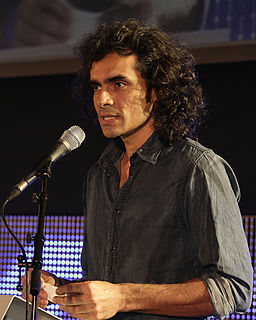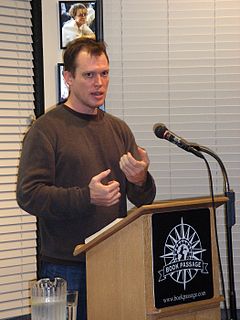A Quote by Imtiaz Ali
The story of 'Highway' is completely about travel. It is about the fascination of travel to an extent that I don't want to even reach the destination and also being away from society gives you a certain view of the society, so that was the intention of the film.
Related Quotes
Long-term travel isn’t about being a college student; it’s about being a student of daily life. Long-term travel isn’t an act of rebellion against society; it’s an act of common sense within society. Long-term travel doesn’t require a massive “bundle of cash”; it requires only that we walk through the world in a more deliberate way.
Every time I travel, I'm in a rage until I reach my destination. I find myself shouting at suitcases, as if it's their fault that I'm an inefficient packer. I've also learnt that whenever you despair of humanity and start thinking that you hate people - as I frequently do - you only have to travel to realise that people are basically all right.
The paradox: there can be no pilgrimage without a destination, but the destination is also not the real point of the endeavor. Not the destination, but the willingness to wander in pursuit characterizes pilgrimage. Willingness: to hear the tales along the way, to make the casual choices of travel, to acquiesce even to boredom. That's pilgrimage -- a mind full of journey.
Trust me: you make a movie about time travel, and you know for a fact humans will never travel through time. The paradoxes that come up just from trying to tell a story with time travel really illuminates the fact that it's impossible. It will never happen. We can barely get through a movie that involves time travel.
Imagine a society that subjects people to conditions that make them terribly unhappy, then gives them the drugs to take away their unhappiness. Science fiction? It is already happening to some extent in our own society... Instead of removing the conditions that make people depressed, modern society gives them antidepressant drugs. In effect, antidepressants are a means of modifying an individual's internal state in such a way as to enable him to tolerate social conditions that he would otherwise find intolerable.
WWI is a romantic war, in all senses of the word. An entire generation of men and women left the comforts of Edwardian life to travel bravely, and sometimes even jauntily, to almost certain death. At the very least, any story or novel about WWI is about innocence shattered in the face of experience.






































